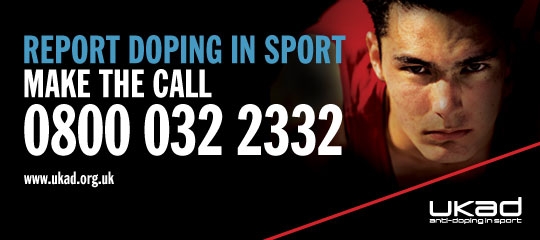Anti-doping officials are conceding that drug testing alone has not been particularly effective at catching athletes who use anabolic steroids and/or other performance-enhancing drugs. In spite of conducting a “world record” of over 5000 anti-doping blood and urine tests at the 2012 London Olympics, United Kingdom Anti-Doping admits that their secret weapon in the war on steroids will include a highly-trained cleaning staff.
UK Anti-Doping has plans to train security and cleaning staff to spy on athletes participating in the Olympic Games in London. Andy Parkinson, the chief executive officer of UK Anti-Doping, wants Olympic athletes, who are considering the use of steroids, to be paranoid. Parkinson has essentially announced that big brother will be watching; steroid-using athletes will not be able to trust anyone at the Olympic Village. Parkinson will have eyes and ears everywhere.
“There will be intelligence sources coming from security and from cleaning for example – these are functional areas that have been involved in anti-doping in previous games,” according to Parkinson. “We will be educating those personnel in those functional areas so that if they should come across behaviours that are untoward they share that information with us.”
In previous Olympics, the cleaning staff has accidentally come across evidence of doping and reported it to Olympic officials. For example, blood transfusion equipment was discovered at the Salt Lake City Winter Olympics in 2002. The discovery ultimately led to the banning of several members of the Austrian ski team. However, the 2012 London Olympics will represent the first Olympic Games in which the cleaning staff will specifically be trained to spy on athletes. It is unknown if housekeeping will receive bonuses if their tips lead to a ban on an athlete or athletes.
Olympic athletes who dope will have to worry about the housekeeping team down the hall but this may not represent their greatest concern. The World Anti-Doping Agency (WADA) has been working diligently behind the scenes, in conjunction with several national anti-doping agencies, to lobby police forces around the world to provide “intelligence” on steroid users around the world.
The use of intelligence from various sources will allow anti-doping authorities to target specific athletes for testing.
“Perhaps the most important bit from our side, is that we utilise the gateway we have into law enforcement to protect the integrity of the games. We can share information with the serious organised crime agency, with the UK borders agency,” explains Parkinson. “Our role is to provide that channel if you like so that we can advise and support the IOC to make sure there is public confidence in the games.”

Source:
McGrath, M. (October 4, 2011). London 2012: Cleaners set to spy on dopers. Retrieved from http://www.bbc.co.uk/news/science-environment-15167725

